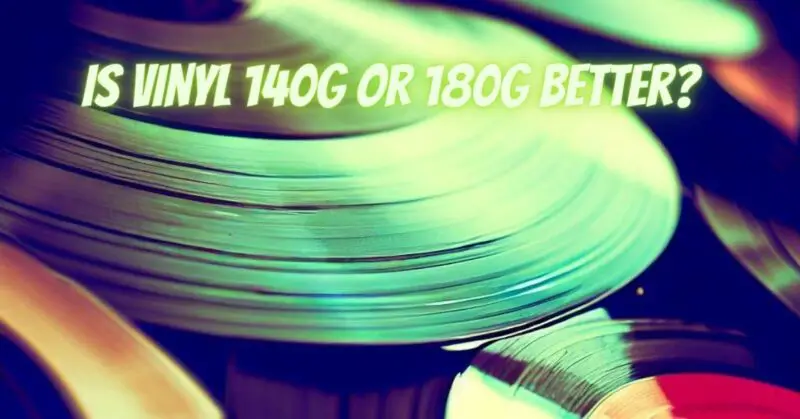The resurgence of vinyl records has brought forth a myriad of formats and variations, with audiophiles often discussing the perceived benefits of heavier vinyl records. Among these debates is the question of whether 180g vinyl holds a sonic advantage over its lighter counterpart, 140g vinyl. In this article, we’ll delve into the differences between 180g and 140g vinyl records and explore whether one truly holds superiority in terms of sound quality.
Understanding Vinyl Weight
Vinyl records are manufactured with varying degrees of thickness, usually measured in grams per square meter (gsm) or grams per inch (gpi). The weight of a vinyl record directly correlates with the amount of vinyl material used during the pressing process.
Comparing Sound Quality
- Surface Noise and Distortion:
- Proponents of 180g vinyl argue that its additional mass reduces surface noise and distortion. Theoretically, a thicker record might provide a more stable surface for the stylus to track, potentially resulting in less noise.
- Flatness and Warping:
- Some claim that 180g vinyl is less prone to warping due to its increased thickness. While thickness can influence warping, proper storage and handling practices are far more critical factors.
- Sound Transparency:
- Advocates of 180g vinyl suggest that its greater mass can result in better sound transparency and detail retrieval. The theory is that the extra weight helps dampen vibrations, enhancing clarity.
- Manufacturing Quality:
- It’s often argued that 180g vinyl is associated with higher manufacturing standards, implying that thicker records receive greater attention during the pressing process.
- 140g Vinyl’s Merits:
- While 140g vinyl might not have the weight advantage, it doesn’t necessarily indicate inferior sound quality. Many well-pressed 140g records exhibit excellent sound quality and offer an enjoyable listening experience.
The Reality of Sound Quality
- Pressing Quality:
- The sound quality of a vinyl record is primarily determined by the quality of its pressing, mastering, and the care taken during manufacturing. Properly pressed and mastered records of varying thicknesses can provide excellent sound reproduction.
- Storage and Handling:
- Regardless of thickness, proper storage and handling practices are critical for preserving sound quality and preventing damage.
- Stylus and Cartridge Quality:
- The stylus and cartridge quality, as well as the playback equipment used, significantly influence the sound you hear from a vinyl record.
While the notion of superiority in 180g vinyl over 140g vinyl is widely debated, it’s important to recognize that thickness alone does not guarantee superior sound quality. Both formats can offer exceptional listening experiences when properly manufactured, pressed, and handled. Ultimately, the sound quality of a vinyl record is a result of multiple factors, including pressing quality, mastering, playback equipment, and your listening environment. Rather than focusing solely on vinyl weight, vinyl enthusiasts should prioritize proper manufacturing and handling practices to ensure an enjoyable and lasting vinyl experiences.


